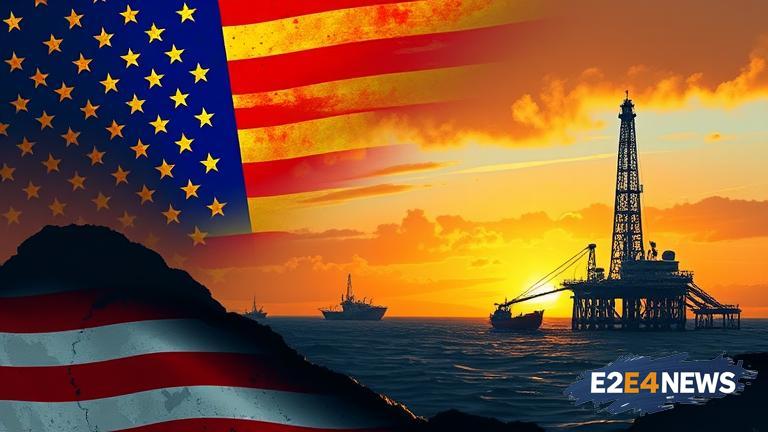The Trump administration has made a significant move in the realm of international energy policy, granting Chevron permission to resume oil drilling in Venezuela. This decision has been met with a mix of reactions, ranging from criticism to cautious optimism. Venezuela, a country rich in oil reserves, has been embroiled in a deepening economic and political crisis. The US has been a key player in the international response to this crisis, with the Trump administration imposing sanctions on the Venezuelan government. Despite these sanctions, the administration has chosen to allow Chevron to continue its operations in the country. Chevron, one of the world’s largest oil companies, has a long history of involvement in Venezuela’s oil industry. The company’s decision to resume drilling is seen as a strategic move to maintain its presence in the country and secure its interests. However, this move has also been criticized for potentially undermining the US’s own sanctions and providing a lifeline to the embattled Venezuelan government. The Venezuelan government, led by President Nicolas Maduro, has been accused of human rights abuses and authoritarianism. The US and other countries have recognized opposition leader Juan Guaido as the legitimate president of Venezuela, further complicating the situation. The decision to allow Chevron to drill for oil in Venezuela has sparked concerns about the potential environmental impact. Venezuela’s oil fields are known to be heavily polluted, and the resumption of drilling activities could exacerbate this problem. Furthermore, the move has also raised questions about the role of US corporations in foreign policy and the extent to which they should be allowed to operate in countries with questionable human rights records. The Trump administration has defended its decision, citing the need to maintain a US presence in the global energy market and to support American businesses. However, critics argue that this decision prioritizes corporate interests over human rights and geopolitical considerations. As the situation in Venezuela continues to unfold, the implications of the Trump administration’s decision to greenlight Chevron’s oil drilling activities will be closely watched. The move is likely to have significant consequences for the country’s economy, as well as for the global energy market. It remains to be seen how this decision will play out in the long term, but one thing is certain – the US’s involvement in Venezuela’s oil industry will continue to be a major point of contention. The decision has also sparked a debate about the effectiveness of US sanctions on Venezuela and whether they are having the desired impact. Some argue that the sanctions are too broad and are harming ordinary Venezuelans, while others believe that they are necessary to pressure the government into reform. The role of Chevron and other US corporations in Venezuela will likely continue to be a topic of discussion in the coming months. As the US navigates its complex relationship with Venezuela, it will be important to consider the potential consequences of its actions on the country’s economy and people. The US’s decision to allow Chevron to drill for oil in Venezuela is a significant development in the country’s ongoing crisis, and its implications will be felt for years to come. The move has also highlighted the need for a more nuanced approach to US foreign policy, one that takes into account the complex interplay between economic, political, and humanitarian considerations. Ultimately, the decision to greenlight Chevron’s oil drilling activities in Venezuela will have far-reaching consequences, and it will be important to monitor the situation closely in the coming months and years.
